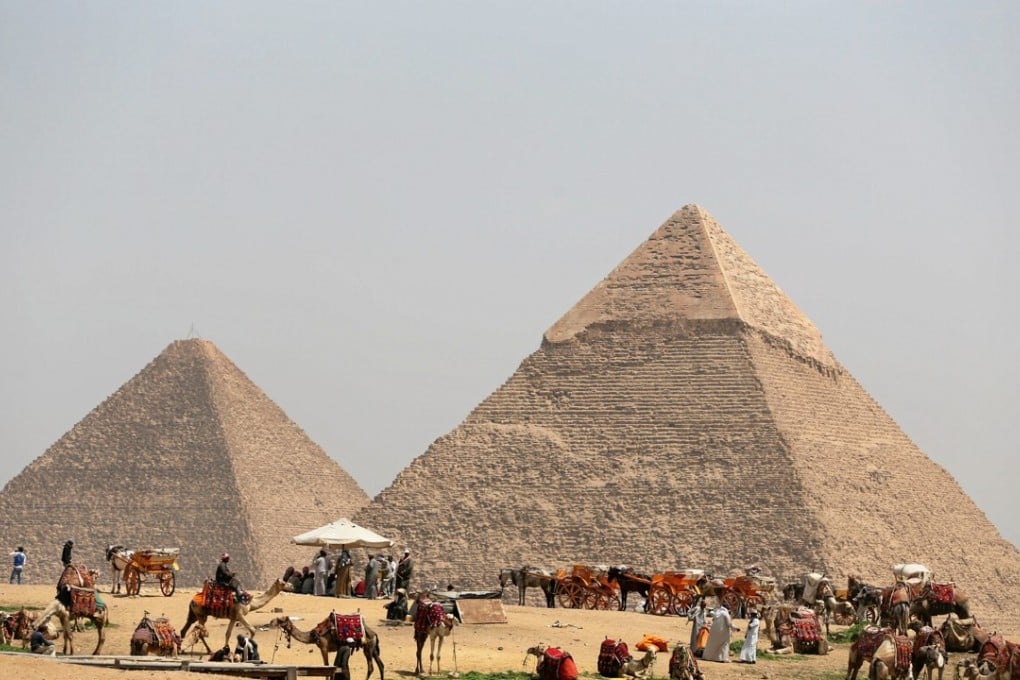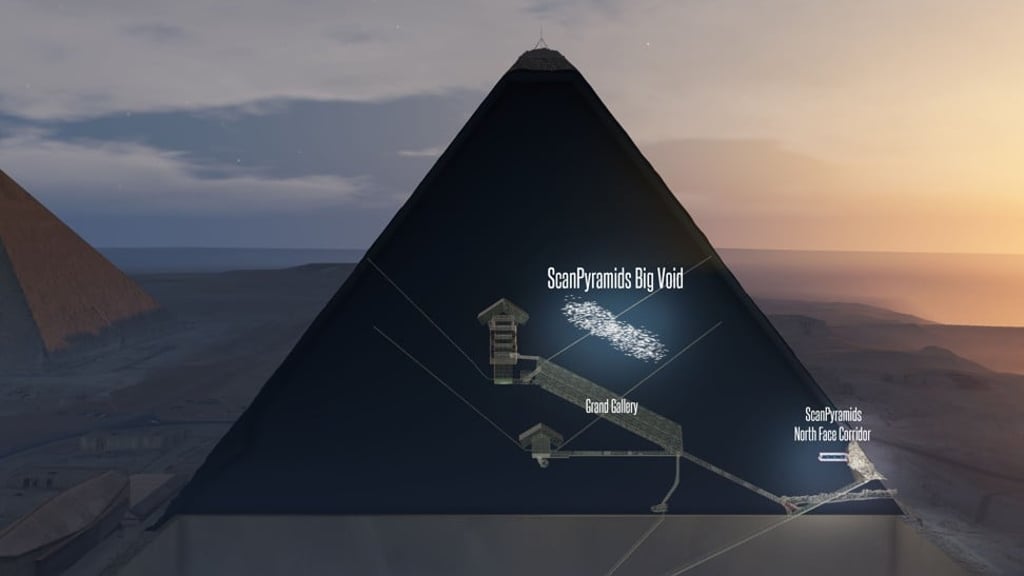
Scientists have found a hidden chamber in Egypt’s Great Pyramid of Giza, the first such discovery in the structure since the 19th century and one likely to spark a new surge of interest in the pharaohs.
In an article published in the journal Nature on Thursday, an international team said the 30-metre void deep within the pyramid is above the structure’s Grand Gallery, and has a similar cross-section. The purpose of the chamber is unclear.
The scientists made the discovery using cosmic-ray imaging, recording the behaviour of subatomic particles called muons that penetrate the rock similar to X-rays, only much deeper. Their paper was peer-reviewed before appearing in Nature, an international, interdisciplinary journal of science.
The pyramid is also known as Khufu’s Pyramid for its builder, a 4th Dynasty pharaoh who reigned from 2509 to 2483BC. Visitors to the pyramid, on the outskirts of Cairo, can walk, hunched over, up a long tunnel to reach the Grand Gallery. The newly discovered chamber does not appear to be connected to any known internal passages.
Scientists involved in the scanning called the find a “breakthrough” that highlighted the usefulness of modern particle physics in archaeology.
“This is a premier,” said Mehdi Tayoubi, a co-founder of the ScanPyramids project and president of the Heritage Innovation Preservation Institute. “It could be composed of one or several structures ... maybe it could be another Grand Gallery. It could be a chamber, it could be a lot of things.”
